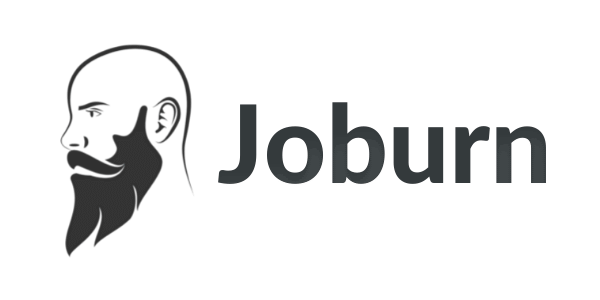Solutions Engineers play a crucial role in ensuring the success of projects across a variety of industries (especially in technical/SaaS companies!). This role requires a strong understanding of technology, as well as excellent communication and interpersonal skills, to bridge the gap between the technical and business worlds.
Keep reading to learn all about them!
What is Solutions Engineer?
A Solutions Engineer is a technical role that involves working with clients to understand their needs and goals, and then designing and implementing solutions to meet those needs. This role requires a strong understanding of technology and the ability to communicate complex concepts to both technical and non-technical audiences.
Solutions engineer job description
The job responsibilities of a Solutions Engineer may vary depending on the company and industry, but some common responsibilities include:
- Understanding the client’s business needs and goals, and working with them to identify and prioritize projects
- Analyzing and evaluating the client’s current technology infrastructure and processes, and identifying areas for improvement
- Designing technical solutions that meet the client’s needs and goals
- Collaborating with cross-functional teams, including sales, engineering, and support, to ensure successful implementation of solutions
- Providing technical support and guidance to clients throughout the project
- Staying up-to-date with new technologies and industry trends to ensure the solutions being designed and implemented are current and relevant
What is the importance of the solutions engineer role?
The importance of the Solutions Engineer role lies in their ability to bridge the gap between the technical and business worlds. They are responsible for ensuring that the solutions being designed and implemented meet the needs of the client and align with their business goals. They also play a key role in ensuring the success of projects by providing technical guidance and support to clients throughout the project.
What are the roles and responsibilities of an solutions engineer?
The roles and responsibilities of a Solutions Engineer may vary depending on the company and industry, but some common responsibilities include:
- Understanding the client’s business needs and goals, and working with them to identify and prioritize projects
- Analyzing and evaluating the client’s current technology infrastructure and processes, and identifying areas for improvement
- Designing technical solutions that meet the client’s needs and goals
- Collaborating with cross-functional teams, including sales, engineering, and support, to ensure successful implementation of solutions
- Providing technical support and guidance to clients throughout the project
- Staying up-to-date with new technologies and industry trends to ensure the solutions being designed and implemented are current and relevant
What are the solutions engineer jobs?
Some common job titles for Solutions Engineers include:
- Solutions Architect
- Technical Account Manager
- Technical Consultant
- Client Solutions Engineer
- Pre-Sales Engineer
What are the solutions engineer interview questions?
Some common interview questions for Solutions Engineers may include:
- Can you describe a technical solution you designed for a client?
- How do you approach analyzing a client’s current technology infrastructure and processes?
- How do you stay up-to-date with new technologies and industry trends?
- How do you communicate complex technical concepts to non-technical audiences?
- Can you give an example of a time when you provided technical support and guidance to a client throughout a project?
- How do you approach collaborating with cross-functional teams to ensure the successful implementation of solutions?
What are the qualifications of solutions engineer?
The qualifications for a Solutions Engineer may vary depending on the company and industry, but some common qualifications include:
- A bachelor’s degree in a technical field such as computer science, engineering, or information technology
- Strong technical skills, including experience with programming languages, databases, and networking
- Experience in the industry and familiarity with current technologies and trends
- Excellent communication and interpersonal skills, including the ability to communicate complex technical concepts to non-technical audiences
- Strong problem-solving and analytical skills
- Ability to work well in a team and collaborate with cross-functional teams
What education does an solutions engineer need?
In terms of education, a bachelor’s degree in a technical field such as computer science, engineering, or information technology is often preferred for a Solutions Engineer. However, some companies may also consider candidates with a related associate’s degree or a combination of education and relevant work experience.
What qualities should an solutions engineer have?
Some qualities that are important for a Solutions Engineer to have include:
- Strong technical skills and a strong understanding of current technologies and trends
- Excellent communication and interpersonal skills, including the ability to communicate complex technical concepts to non-technical audiences
- Strong problem-solving and analytical skills
- Ability to work well in a team and collaborate with cross-functional teams
- Attention to detail and ability to manage multiple tasks and priorities
- Customer-focused approach and ability to understand and meet the needs of clients
- Ability to think creatively and come up with innovative solutions to complex problems.
What are the solutions engineer skills?
Some common skills that a Solutions Engineer should have include:
- Strong technical skills, including experience with programming languages, databases, and networking
- Excellent communication and interpersonal skills, including the ability to communicate complex technical concepts to non-technical audiences
- Strong problem-solving and analytical skills
- Ability to work well in a team and collaborate with cross-functional teams
- Attention to detail and ability to manage multiple tasks and priorities
- Customer-focused approach and ability to understand and meet the needs of clients
- Ability to think creatively and come up with innovative solutions to complex problems
- Familiarity with current technologies and trends in the industry
What is solutions engineer strategy?
The solutions engineer strategy involves understanding the client’s business needs and goals, and then designing and implementing solutions to meet those needs. This requires a strong understanding of technology and the ability to communicate complex concepts to both technical and non-technical audiences.
What is solutions engineer process?
The solutions engineer process involves several steps, including:
- Understanding the client’s business needs and goals: This involves working with the client to identify and prioritize projects and understand their needs and goals.
- Analyzing the client’s current technology infrastructure and processes: This involves evaluating the client’s current technology infrastructure and processes, and identifying areas for improvement.
- Designing technical solutions: This involves designing technical solutions that meet the client’s needs and goals.
- Collaborating with cross-functional teams: This involves working with cross-functional teams, including sales, engineering, and support, to ensure successful implementation of solutions.
- Providing technical support and guidance: This involves providing technical support and guidance to clients throughout the project.
What is solutions engineer prospecting?
Solutions engineer prospecting involves identifying and reaching out to potential clients to discuss their needs and explore opportunities for providing technical solutions. This may involve researching potential clients, reaching out to them through various channels such as email or phone, and setting up meetings or calls to discuss their needs in more detail.
What is solutions engineer playbook?
A solutions engineer playbook is a document that outlines the processes, strategies, and best practices that a Solutions Engineer should follow when working with clients. It may include information on how to identify and prioritize projects, how to design and implement technical solutions, how to collaborate with cross-functional teams, and how to provide technical support and guidance to clients.
What is solutions engineer KPIs?
Solutions engineer KPIs, or key performance indicators, are metrics that are used to measure the performance of a Solutions Engineer. These may include metrics such as the number of projects completed, the number of clients served, the quality of solutions provided, and customer satisfaction ratings.
What is solutions engineer quota?
A solutions engineer quota is a target or goal that a Solutions Engineer is expected to achieve in a given time period. This may be related to the number of projects completed, the amount of revenue generated, or other metrics that are relevant to the role.
What is solutions engineer time management?
Solutions engineer time management involves effectively managing one’s time to ensure that tasks and projects are completed efficiently and effectively. This may involve setting priorities, creating and following a schedule, and using tools such as task lists and calendars to stay organized.
Is solutions engineer a good job?
Whether or not a Solutions Engineer job is good will depend on an individual’s skills, interests, and career goals. Some potential benefits of working as a Solutions Engineer may include:
- Opportunities to work with a wide range of clients and industries
- Opportunity to work on challenging and complex projects
- Opportunity to stay up-to-date with new technologies and industry trends
- Potential for career advancement
- Competitive salary and benefits
How to become an solutions engineer
To become a Solutions Engineer, you will typically need to have a bachelor’s degree in a technical field such as computer science, engineering, or information technology. You may also need to have strong technical skills, including experience with programming languages, databases, and networking. Additionally, excellent communication and interpersonal skills, strong problem-solving and analytical skills, and the ability to work well in a team are important for success in this role.
How to recruit an solutions engineer
To recruit a Solutions Engineer, you may consider posting job openings on job boards and online job search websites, as well as on your company’s website and social media pages. You can also reach out to professional organizations and network with potential candidates through events, conferences, and other industry events. Other strategies for recruiting a Solutions Engineer may include using recruiting agencies or headhunters, or offering internships or apprenticeships to attract new talent. It may also be helpful to clearly define the qualifications and skills that you are looking for in a Solutions Engineer, and to provide a clear job description and expectations for the role.
Does a solutions engineer code?
It is possible that a Solutions Engineer may be involved in coding, depending on the specific needs of the client and the company they work for. Many Solutions Engineers have strong technical skills and may be proficient in programming languages, databases, and networking. However, the specific responsibilities of a Solutions Engineer may vary depending on the company and industry, and they may not necessarily be responsible for coding on a regular basis.
What is another name for solutions engineer?
Some common alternative job titles for Solutions Engineers include:
- Solutions Architect
- Technical Account Manager
- Technical Consultant
- Client Solutions Engineer
- Pre-Sales Engineer
These job titles may all involve similar responsibilities, such as working with clients to understand their needs and goals, designing and implementing technical solutions, and providing technical support and guidance. However, the specific focus and scope of the role may vary depending on the company and industry.

